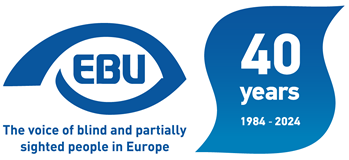Getting a new job can be a daunting task, especially when you’re visually impaired. Below I will take you through the three most important tips and tricks to make applying for a new job easier, and to increase your chances of success.
1. Self-reflect on your strengths and weaknesses
Many people look for jobs based on what they think they’d like to do. This isn’t always easy to determine, especially when you’re inexperienced and have never actually worked in a particular job. This is why I advise people to reflect on their strengths and weaknesses first. You can do this yourself by making two lists ‘Things I’m good at’ and ‘Things I’m bad at’ and adding items to those lists as you go through life. Having a basic understanding of your strengths and weaknesses will help you find a job that you can actually be successful in.
Having a thorough understanding of your strengths and weaknesses is especially important when you have a disability. Your disability may provide some hard limits on what kind of jobs you can and can’t do. For instance, as a visually impaired person, I know I’ll never be a helicopter pilot. Your disability may also provide you with extra strengths, for instance, many visually impaired people report having a better memory than their sighted peers.
2. Don’t communicate your disability in advance
One of the most frequently asked questions I’ve received is: ‘should I put my disability in my cover letter or CV?’. The answer to this question is almost always ‘no!’, unless your disability may actually help you get the job.The cover letter and CV are the tools through which you show an employer why you are perfect for the job. People without disabilities have weaknesses too, and they don’t put them in their CV or cover letter, so neither should you. Employers may be prejudiced towards people with disabilities. Usually this is not because of malice, but because they’re unfamiliar with the capabilities of people with disabilities. By putting your disability in your CV or cover letter you risk being refused purely based on prejudice.
There is only one situation in which it is advisable to put your disability in your CV or cover letter. That is when the employer specifically asks for people with your specific disability, or when you know that your experience with being disabled will clearly be of added value. This may be the case when applying for a job at the EBU, for instance.
3. Be clear and concise about your disability during the job interview
So you didn’t put your disability in your cover letter or CV and you’ve made it through the first round of applications. You’ve been invited to a job interview, congrats! Is it time to panic now? No! Take a deep breath and think about how you want to handle the subject of your disability during the job interview. I’ll give you some advice below.
The most important thing to understand is that you are responsible for helping the employer understand the nature of your disability and its consequences for the job you’re applying for. An employer will generally notice your disability during the interview and ask you about it. If they do not, take the initiative during the job interview to mention the subject. Explain clearly and concisely what your disability is, without going into a long medical background story. Next, tell the employer what consequences your disability may have for the job at hand. Then, show the employer that you’ve already thought about possible solutions. Make clear that you want to look for solutions together if needed.
The final important thing to understand is that employers don’t just hire the candidate that they think is most capable. They also hire people that they would actually like to work with! Many employers are not used to socializing with people with disabilities. It can be somewhat scary for them to do so for the first time. Just show them that you’re a normal person just like them. Try to make a human connection. Your chances of success will only increase when you do.
By Jasper Ebels. Jasper is a Netherlands based management consultant and professional skills trainer. He was born visually impaired, and aims to help people with disabilities be successful in the professional world.

